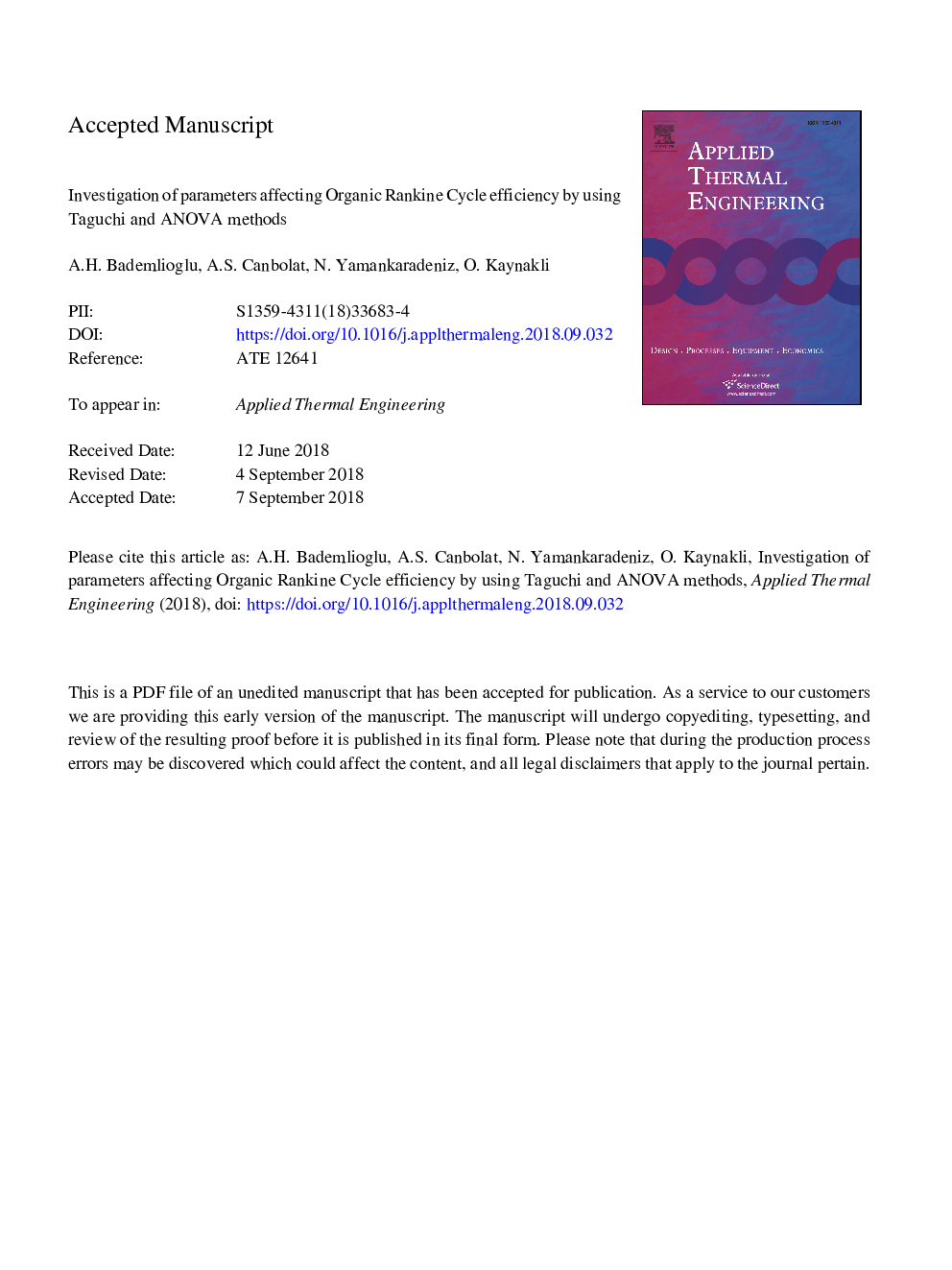| Article ID | Journal | Published Year | Pages | File Type |
|---|---|---|---|---|
| 10151971 | Applied Thermal Engineering | 2018 | 22 Pages |
Abstract
There are many factors affecting the Organic Rankine Cycle's (ORC) performance, such as working fluid selection, evaporator and condenser temperatures, pinch point temperature differences (the minimum temperature difference between refrigerant and the waste heat source (PPTDevap) or cooling water (PPTDcon)), superheating temperature, heat exchanger effectiveness, and isentropic efficiencies of the turbine and pump. In this study, the parameters' impact weights on the cycle's efficiency are discussed and comparatively examined based on the statistical analyses. First, the system's thermodynamic model was established, and variation of the cycle's thermal efficiency was calculated for different parameters and their different ranges. Next, to obtain the contribution ratios and the order of importance of these parameters, the thermodynamic analysis results were evaluated using two statistical methods: Taguchi and ANOVA. In conclusion, the evaporator and condenser temperature and the turbine efficiency have a large effect on the thermal efficiency of the ORC, and the total impact ratio of these parameters is determined as approximately 70%. However, PPTDevap, PPTDcon and pump efficiency are found to be the least effective parameters. In addition, the best and the worst operating conditions are determined from the statistical analysis and in these operating conditions, the thermal efficiencies of the ORC are obtained as 18.1% and 9.6%, respectively.
Related Topics
Physical Sciences and Engineering
Chemical Engineering
Fluid Flow and Transfer Processes
Authors
A.H. Bademlioglu, A.S. Canbolat, N. Yamankaradeniz, O. Kaynakli,
